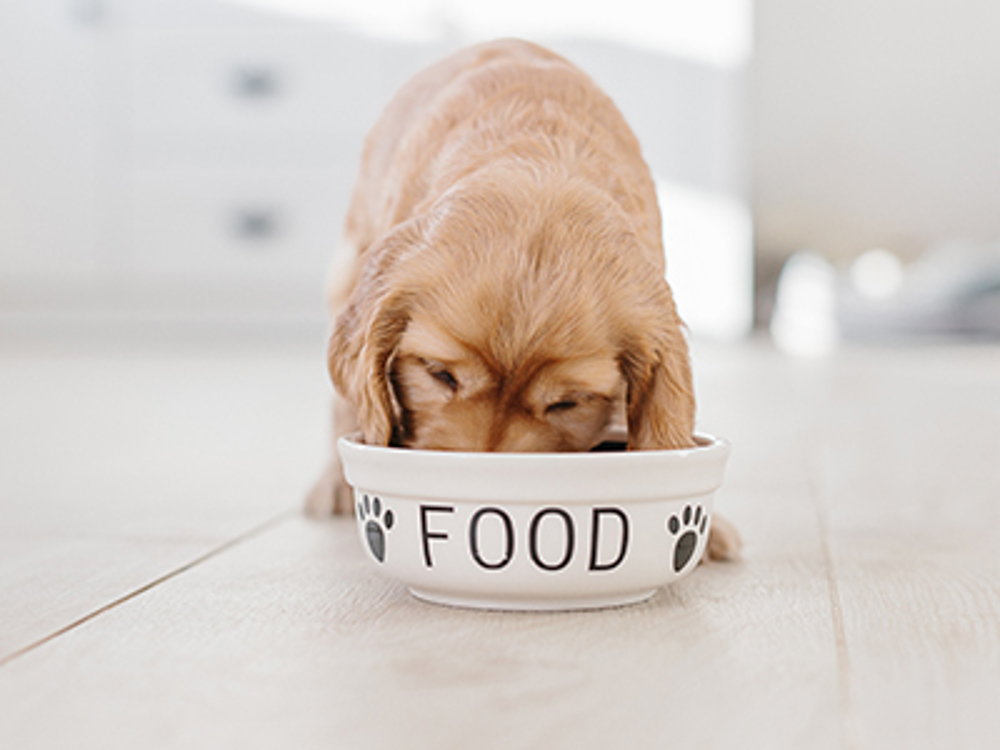
Just like a baby, your puppy will grow up before you know it. In just one year (two for large breeds) your puppy’s bones and joints will grow to full size. Their muscles, internal organs and immune system will fully develop. And their cognitive skills will develop too, meaning your pup can learn lots of new things.
With all that growth and development, your puppy has some specific nutritional needs. So you’ll need to make sure they’re eating complete and balanced food, that is formulated specifically for puppies and that provides all the necessary nutrients in the proper quantities and ratios to each other.
Here’s a look at what makes up a high-quality puppy diet:
Water
The key to life. Water aids in hydration, helps regulate temperature and transports nutrients throughout the body. Make sure your puppy has a bowl of fresh water at all times, whether it’s meal time or not.
Calories
To say puppies are active is an understatement. Depending on your puppy’s age, breed size, environment and activity level, energy needs will vary. While you need to make sure you’re giving your puppy enough calories, you also don’t want to give him too many. Otherwise, his body will store the extra energy as fat, which can lead to obesity.
Protein
Protein is the building block of muscle development and tissue repair. Protein also supports immune function, the synthesis of enzymes and hormone production. It can be utilised as a source of energy, too.
Fats
Yes, that’s right. Despite what you may think, fats are actually a concentrated form of energy – and a source of essential fatty acids that will help your puppy absorb certain vitamins and maintain a healthy skin and coat.
Carbohydrates
Chewing, romping, running and playing take a lot of energy. And aside from sleeping, that’s about all puppies do. Cereal grains like oats, wheat, corn and rice will help keep their motors running.
Minerals
Elements like calcium, magnesium, potassium and iron are necessary to help your puppy’s body perform certain important functions – like growing strong bones and teeth, maintaining normal muscle and nerve function and producing hormones.
DHA
DHA (docosahexaeonic acid) is a natural omega-3 fatty acid that helps support brain and vision development.
Vitamins
Essential vitamins like vitamin E will help keep your puppy’s immune system healthy, while vitamin A will help maintain skin and hair.
With the exception of water, dog foods identified as 100% complete and balanced contain the proper proportions of all of the required nutrients for this life stage.
When preparing your puppy's food, always ensure you follow the recommended feeding guide on the package (unless otherwise recommended by your vet), as amounts can vary from breed to breed and also change with age.

